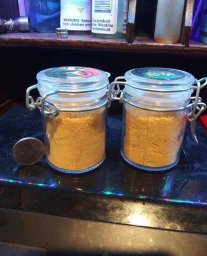Introduction
Dimethyltryptamine (DMT) has emerged as one of the most intriguing substances in modern psychedelic research. Often referred to as the “spirit molecule,” DMT produces profound, short-lived experiences that many users describe as transformative and deeply spiritual. Across the UK and Europe, there’s growing interest in DMT’s potential to treat conditions such as depression, anxiety, and post-traumatic stress disorder (PTSD). With increasing research and advocacy, the conversation around psychedelics is shifting from stigma to science, offering new pathways for mental health healing.
UKMushroom.uk, a trusted platform for psychedelic wellness, provides a range of related products—from Ibogaine in the UK to Magic Truffles and Mushroom Edibles—that complement emerging discussions about DMT therapy.
Understanding DMT: Nature’s Most Potent Psychedelic
DMT occurs naturally in certain plants and even within the human body. When smoked, vaporized, or consumed as part of the Amazonian brew Ayahuasca, it can induce vivid visual and emotional experiences lasting 10–30 minutes. Scientists believe DMT interacts with serotonin receptors in the brain, particularly 5-HT2A, which are crucial for mood regulation and consciousness.
Research featured on Wikipedia (ukmushroom.uk) and WorldScientificImpact.org highlights DMT’s unique role in altering neural connectivity. This mechanism may explain its therapeutic benefits in addressing treatment-resistant depression and trauma.
The Therapeutic Promise of DMT in Mental Health Treatment
Recent clinical studies and anecdotal reports suggest that DMT, when administered under supervision, may significantly reduce symptoms of PTSD, anxiety, and existential distress. Unlike traditional antidepressants that take weeks to work, DMT’s effects can appear almost instantly and may lead to lasting emotional breakthroughs.
In therapeutic settings, DMT-assisted psychotherapy focuses on controlled doses that facilitate introspection and emotional release. Some participants report a profound sense of unity and self-acceptance, elements often missing in conventional mental health approaches.
For those exploring natural alternatives, Pain Relief Pills and Magic Truffles from UKMushroom.uk offer supportive wellness options rooted in natural, plant-based compounds.
The Legal Landscape of DMT in the UK and Europe
Despite promising research, DMT remains a controlled substance in many European countries, including the UK. Under the Misuse of Drugs Act 1971, it is classified as a Class A drug, meaning possession and distribution are illegal without a research license.
However, attitudes are changing. In countries like Portugal and the Netherlands, the use of certain natural psychedelics—such as psilocybin truffles and mescaline-containing cacti—is decriminalized or tolerated. This has created an environment for responsible exploration and harm-reduction practices.
For those in the UK curious about legal alternatives, platforms such as UKMushroom.uk offer safe, regulated access to products like Mushroom Grow Kits and Fresh Mushrooms. These provide a hands-on, educational way to engage with nature’s healing potential without breaking the law.
Comparing DMT with Other Psychedelics
While DMT stands out for its intensity, it shares therapeutic potential with other psychedelics like psilocybin, mescaline, and ibogaine. Each has unique pharmacological effects and healing mechanisms.
- Psilocybin mushrooms (available as Fresh Mushrooms) offer a longer, more introspective journey often used to treat depression and addiction.
- Mescaline, found in Mescaline Cacti, promotes empathy and emotional clarity.
- Ibogaine, accessible through Ibogaine in the UK, has shown promise in interrupting addiction cycles, particularly for opioid dependence.
These psychedelics, though different, share one purpose: facilitating deep emotional healing and neuroplasticity.
Integrating Psychedelics into Modern Mental Health Practices
As the conversation around DMT and psychedelics evolves, more therapists are exploring integrative approaches that combine traditional psychotherapy with natural medicine. Studies referenced on WorldScientificImpact.org emphasize the importance of safe environments, trained facilitators, and post-experience integration therapy to maximize the benefits of psychedelic experiences.
UKMushroom.uk has become a hub for individuals seeking education and access to responsible alternatives. Whether through Mushroom Edibles or Magic Truffles, their mission aligns with global movements promoting mental health, safety, and scientific innovation.
Conclusion
The rise of DMT in the UK and Europe represents a pivotal moment in the evolution of mental health treatment. While legal restrictions remain, the ongoing research and public discourse reflect a growing demand for more compassionate, effective approaches to healing. As regulatory frameworks shift and awareness expands, DMT and related psychedelics could redefine the future of therapy and consciousness.
For further exploration of legal, natural, and safe psychedelic alternatives, visit UKMushroom.uk, WorldScientificImpact.org, Wikipedia (ukmushroom.uk), and BuyOneUpMushroomBar.us.

No Responses